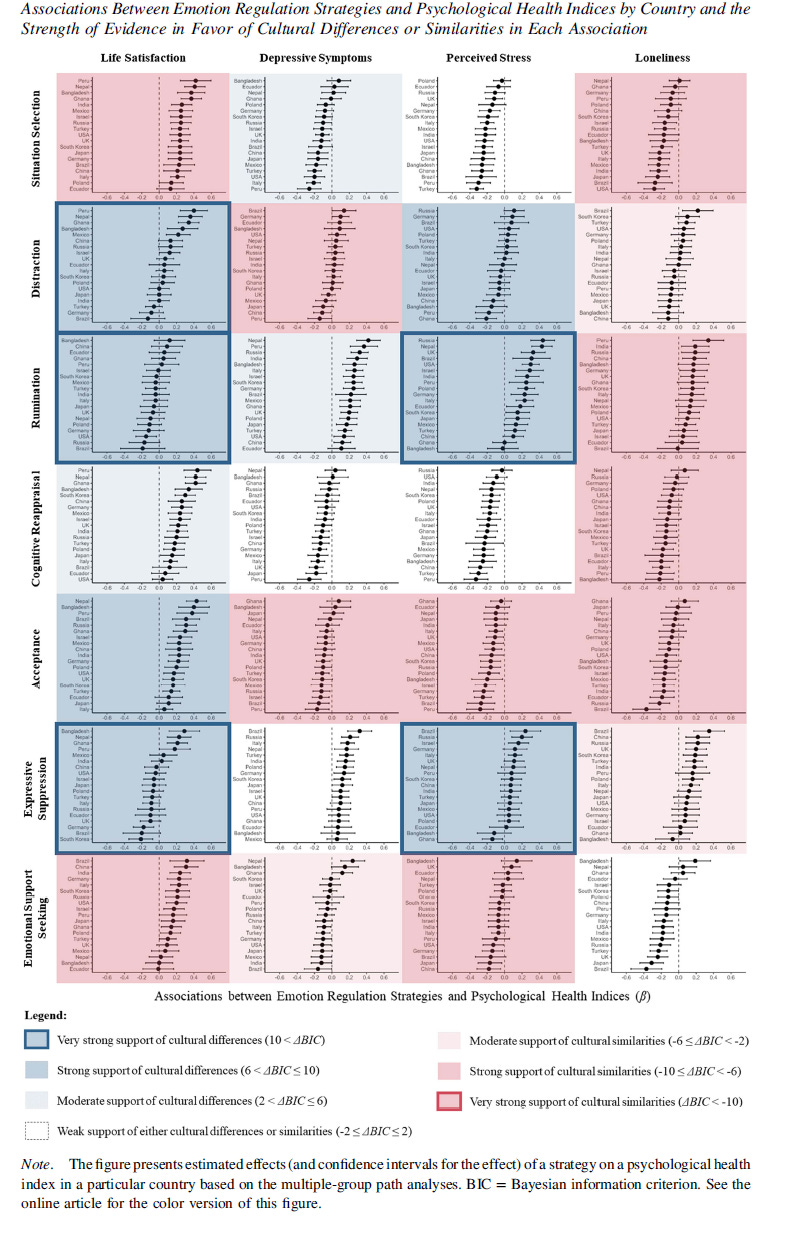Social Yips, Hijacked Brains, and Cross-Cultural Differences on What Emotion Regulation Strategies Work
A great conversation and research on directing energy better for life's most Important decisions
My Well-Being Lab spent over six years expanding prevailing models of psychological flexibility. Notably, we felt that Acceptance and Commitment Therapy leaves out an important dimension of managing emotions.
Yes, avoiding tends to be problematic when dealing with internal feelings or social situations. Inform your kid who chews like a cow in a field of fresh grass that your sanity plummets with each slurp and chomp.
Yes, tolerating tough situations is better than avoidance. Life is like a tray of spicy tacos and sometimes you just have to bite down, embrace the heat, and trust that your taste buds will adapt.
Yes, accepting what you think and feel, along with past events that informed your identity, and the inevitability of pain, is more adaptive than both avoidance and tolerance. Your parents' well-intentioned but misguided attempt at boiling brussels sprouts is forgiven as now you possess the intestinal fortitude to consume nearly anything.
But is that it? No way. There is at least another, even more potent level - Harnessing emotions and pain such that they are wielded as tools to help us reach desired outcomes.
While my team published articles on this model (here), and have seen it replicated in collectivist countries such as Iran (here) and China (here), surprisingly little has been said on this topic. For this reason, I spoke in depth with the brilliant
.This is about using and directing energy into motivational fuel for life’s most important activities.
What is the origin of harnessing as a self-regulatory tool?
There is a lot of credit to give. For now, let me focus on a scientist I adore. A scientist who lacks the psychological and financial conflicts of interest to any therapy modality (such as Acceptance and Commitment Therapy, Dialectical Behavior Therapy, and whatever alphabet soup leads to a windfall of lucrative workshops and books).
Researchers such as Maya Tamir whose team continues to identify which emotion regulation strategies are used by healthy people and when are they most useful. Notably, she found strong support for cultural differences in how distraction, rumination, suppression, and acceptance impact mental health [here] - captured by the dark blue boxes with dark edges in the Figure below.
This mentally taxing figure suggests that you cannot give advice on what strategies are most adaptive for mental health without knowledge of where they are being used. There is consistent evidence that the costs of avoidance (rumination, distraction, suppression) and benefits of acceptance depend on what culture you live in. Now what’s interesting is that each cultural difference can be explained by whether someone lives in a country predominantly individualistic versus collectivist.
Avoidance strategies are worse for mental health in countries such as the United States and the United Kingdom. Acceptance strategies are more beneficial for mental health in countries such as Nepal, Bangladesh, and Peru. Another reminder to reconsider USA ethnocentrism.
That is a lot of content to absorb. However, if you want access the entire 60-minute conversation, and a lot more on harnessing, consider becoming a premium subscriber. Get it below.






